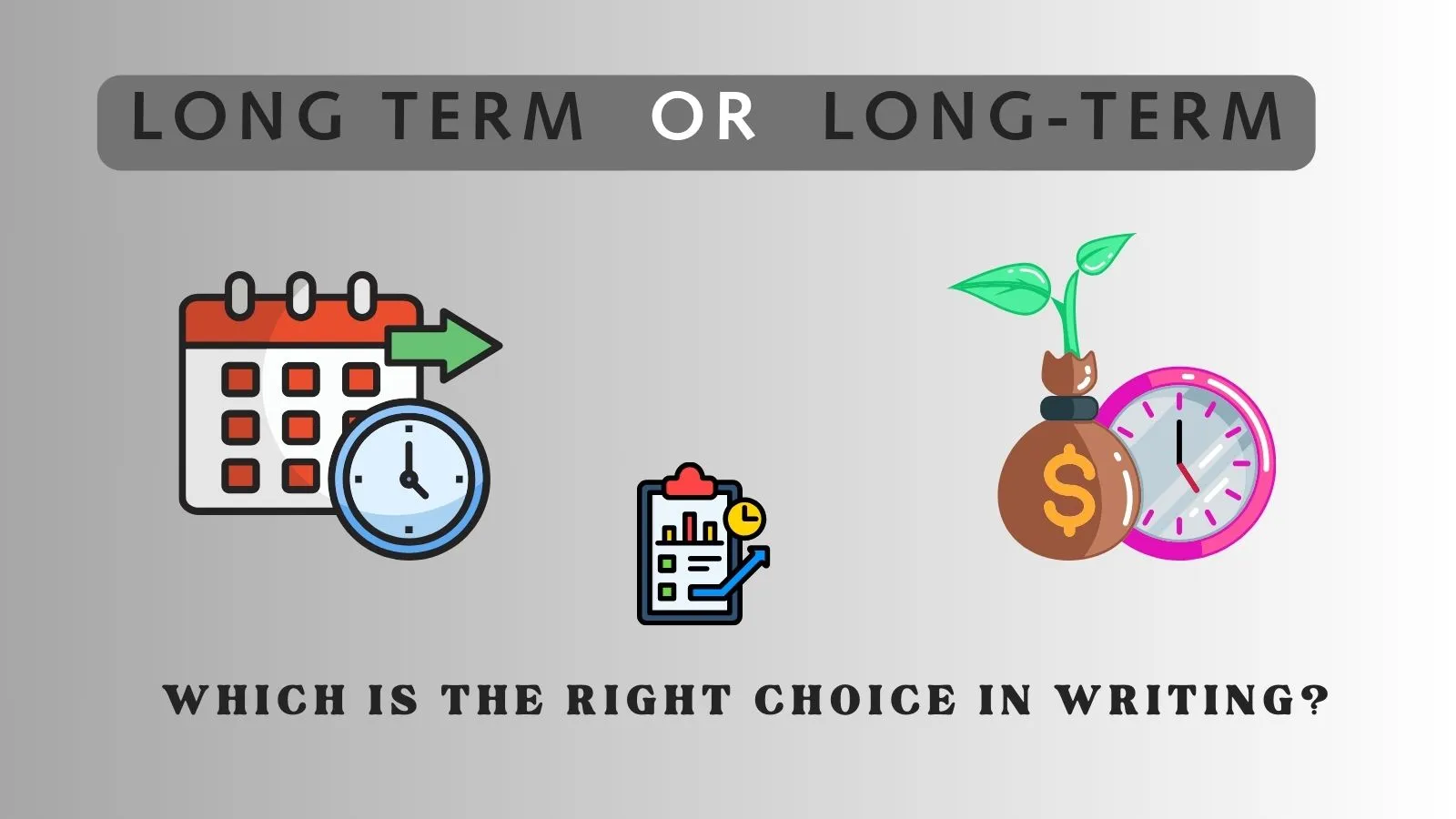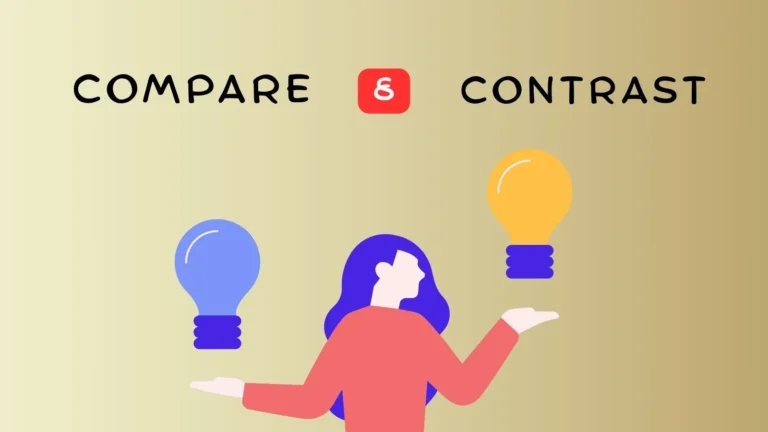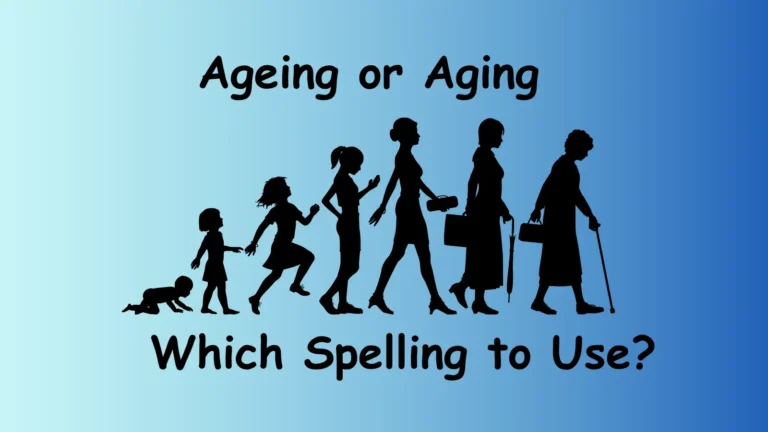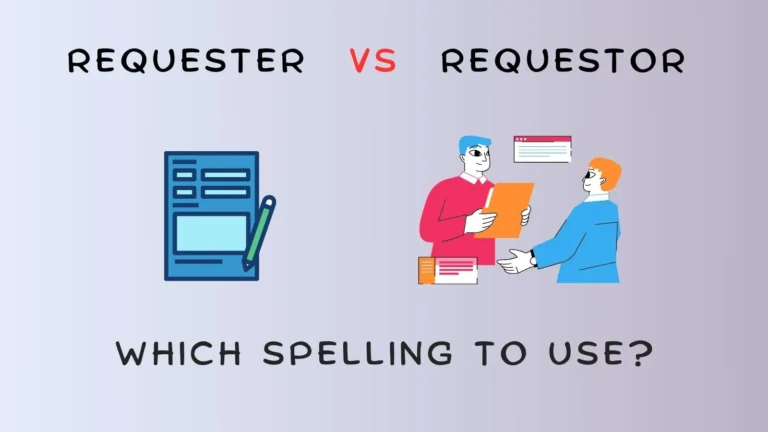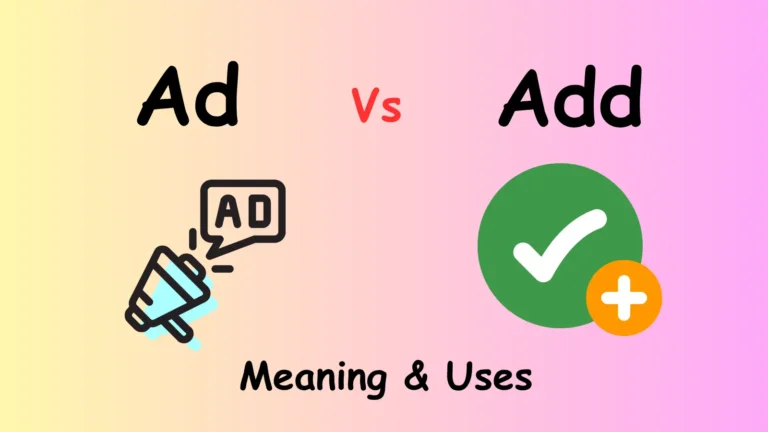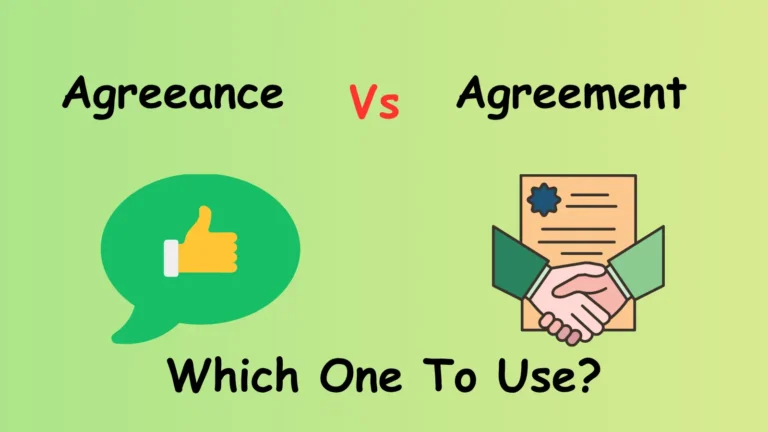Long Term or Long-Term: Which Is the Right Choice in Writing?
When choosing between “long term or long-term,” it is crucial to understand their grammatical roles. “Long term” is a noun phrase referring to an extended time period, while “long-term” is a compound adjective describing something that lasts a long time. For example, we might say, “Our goal is success in the long term,” or “They implemented a long-term strategy.” By using the correct form, you’ll guarantee clarity and precision in your writing. Let’s explore the nuances further.
Quick Walk Through-“Long Term or Long-Term”
- “Long term” is a noun phrase that refers to an extended period of time, while “long-term” is a compound adjective.
- Use “long term” when discussing a lengthy duration or future-oriented perspective without modifying a specific noun.
- Use “long-term” as an adjective to describe something lasting or extending over a considerable period, such as “long-term goals.”
- The hyphen in “long-term” clarifies its usage as an adjective, linking “long” and “term” to modify a noun.
- Understanding the grammatical difference between “long term” and “long-term” ensures precision and clarity in writing.
What Does “Long-Term” (hyphenated) Mean?
When we use the hyphenated term “long-term,” it functions as a compound adjective that describes something lasting or extending over a considerable period. The hyphen links “long” and “term,” indicating they work together to modify a noun.
This distinguishes “long-term” from the noun phrase “long term.” Examples include “long-term goals,” “long-term investment,” and “long-term commitment,” emphasizing significant duration.
What Does “Long Term” (with space) Mean?
The term “long term” without a hyphen refers to an extended period of time, often used as a noun phrase to indicate a lengthy duration. Unlike the hyphenated “long-term,” which functions as an adjective, “long term” stands alone to emphasize a future-oriented perspective.
For example, you might say, “Her goals are focused on the long term rather than short-term gains.”
Long Term vs Long-Term: The Differences
Let’s explore the critical differences between “long term and long-term” to safeguard precision in our writing. While both refer to extended time periods, they serve distinct grammatical functions that are essential to understand. We can summarize the main differences in this handy table:
| Form | Function | Example |
|---|---|---|
| long term | noun phrase | Her focus is on the long term. |
| long-term | adjective | They devised a long-term strategy. |
“Long Term” as a Noun Phrase
To understand the difference between “long term” and “long-term,” let’s start by examining how “long term” functions as a noun phrase. “Long term” refers to an extended period of time, emphasizing a future-oriented perspective without acting as an adjective.
For example, you might say, “Her goals are focused on the long term,” using “long term” as a standalone noun phrase.
“Long-Term” as an Adjective
In contrast to the noun phrase “long term,” the hyphenated form “long-term” functions as an adjective that directly modifies a noun. For example, we might refer to a “long-term strategy” or “long-term commitment.” The hyphen links “long” and “term,” indicating they work together to describe the noun.
While “longterm” without a hyphen is incorrect, “long-term” clarifies the adjective usage.
Synonyms For “Long Term” and “Long-Term
Let’s explore some synonyms for the noun phrase “long term” and the adjective “long-term.”
When referring to an extended period, we can use phrases like “extended period,” “prolonged duration,” or “lengthy timeframe” in place of “long term.”
For the adjective “long-term,” we can substitute terms such as “enduring,” “lasting,” “persistent,” or “prolonged” to convey the same meaning.
Synonyms for “Long Term” (Noun Phrase)
Several synonyms can be used in place of the noun phrase “long term” to convey the idea of an extended period:
- The long run
- The long haul
- The distant future
These alternatives maintain the meaning of “long term” without using the potentially confusing “longterm” or “long-term” forms. Choosing a synonym can provide clarity while avoiding the question of whether “long term” should be hyphenated.
Synonyms for “Long-Term” (Adjective)
When you need an adjective to describe something lasting a long time, but you want to avoid the potential confusion surrounding “long-term,” consider using one of these synonyms:
- Enduring – emphasizing resilience and staying power
- Prolonged – focusing on the extended duration
- Sustained – indicating a continuous, uninterrupted period
Choosing the right synonym for ,longterm or long-term guarantees clarity in your writing.
Also Read: Plural of “Journey”: Is It Journeys or Journies?
Examples in Context
Let’s examine some real-world examples that demonstrate the distinction between “long term” and “long-term” in context. We’ll start by looking at instances where “long term” is used as a noun phrase.
Then, we’ll explore how “long-term” functions as an adjective to modify nouns in various sentences.
Examples Using “Long Term” (Noun Phrase)
Using “long term” as a noun phrase emphasizes a focus on extended time periods, often in the context of planning, strategy, or goals.
Examples include:
- We’re developing a plan for the long term, not just quick fixes.
- The company’s success in the long term depends on innovation and adaptability.
- My financial advisor helped me establish goals for the long term.
Examples Using “Long-Term” (Adjective)
The hyphenated compound adjective “long-term” modifies nouns to indicate something that lasts, continues, or has an effect over an extended period. Examples include:
1. Long-term investments are designed for financial growth over many years.
The company developed a long-term strategy to expand its market share.
Researchers are studying the long-term effects of the new medication on patients.
Origins of “Long Term” and “Long-Term
Let’s explore the origins of the terms “long term” and “long-term.”
The noun phrase “long term” has roots in Middle English, where “long” indicated an extended duration and “term” referred to a fixed period.
In contrast, the adjective “long-term” first appeared in 1876 in the context of insurance underwriting, combining “long” and “term” with a hyphen to describe something extending over a significant period.
Origin of “Long Term
Tracing the origins of “long term” takes us back to the Middle English period, where the words “long” and “term” first came together to describe extended periods of time. “Long” conveyed the sense of an extended duration, while “term” referred to a fixed or defined period.
Over the centuries, this noun phrase evolved to indicate a focus on future outcomes and planning.
Origin of “Long-Term
First appearing in the context of insurance underwriting in 1876, the adjective “long-term” was formed by combining the adjective “long” with the noun “term” and connecting them with a hyphen.
This new compound adjective allowed for a concise description of something extending over a significant period, particularly in insurance policies and financial contexts where prolonged durations needed to be clearly indicated.
Frequently Asked Questions
Is long term hyphenated?
Yes, “long term hyphenated when used as a compound adjective before a noun. For example, you would say “long-term goals” or “long-term plans.” The hyphen helps clarify that the two words work together to modify the noun that follows.
However, when “long term” is used as a noun or an adverbial phrase, it is typically not hyphenated. For instance, you might say, “In the long term, we expect to see improvements.”
What does Long Term mean?
“Long term” generally refers to an extended period, often spanning several years or decades, depending on the context. In finance, for example, long-term investments are those held for more than a year, allowing for growth and compounding over time. In personal goals, such as career planning or health objectives, “long term” signifies aspirations that require sustained effort and commitment rather than immediate results.
Final Verdict
We’ve unraveled the mystery behind “long term” and “long-term,” meticulously detailing their differences and usage. No longer will you find yourself in a hyphenation haze, pondering which form to choose. Armed with this knowledge, you’ll confidently navigate the treacherous waters of writing, avoiding the pitfalls of inconsistency that plague the less detail-oriented. So, go forth and write with precision, knowing that you’ve mastered the art of “long term” and “long-term” usage. Happy writing!
Sources
Merriam-Webster (Long-term Definition & Meaning), Etymonline (Etymology of long-term by etymonline).

